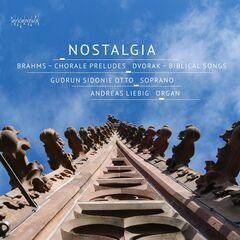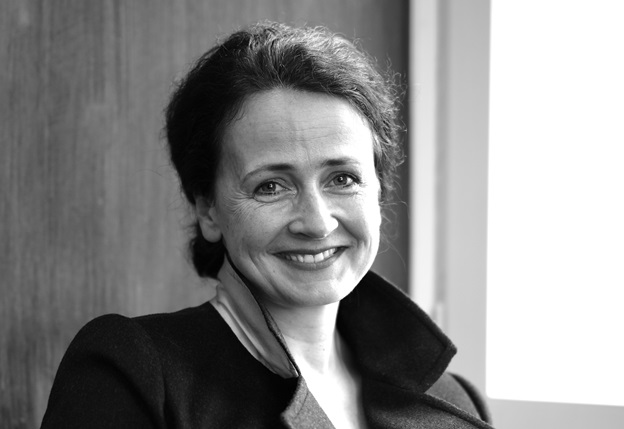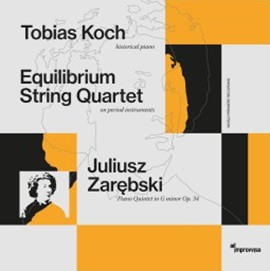Your album ‘Nostalgia’has just been released, on which you and your husband, Basel Minster organist Andreas Liebig, have recorded Antonin Dvorak’s Biblical Songs and Johannes Brahms’ Choral Preludes, Op. posthumous 122, both late cycles by the composers. How did you come up with the title ‘Nostalgia’?
Both Johannes Brahms and his friend and protégé Antonin Dvorak, whom he greatly admired and supported, deal with grief and loss in these ‘prayers’. Imagine: Dvorak is currently director of the conservatory in New York, he misses his homeland and his father, who is lying, dying far away from him. Brahms, on the other hand, writes the chorales shaken by the stroke and death of his beloved Clara. It is the last thing he ever writes, ‘O world, I must leave you’ are his very last notes. For me, both cycles express a longing for peace, not only earthly peace, but also the peace from which we all once came – and to which we may return.
The title ‘Nostalgia’ may also echo Tarkovsky’s classic film, as he worked with images with different levels of meaning, images of the soul, so to speak. I also see this in the two cycles by Dvorak and Brahms.
For me, the Psalms are like prayers cast in images. There is a longing for real, deep peace, for a ‘return to meaning’ to something ‘meaningful’: I am currently seeing so many people who are searching for this again.
 Mrs Otto, I must confess something to you: listening to your ‘Nostalgia’ brought tears to my eyes. Your beautiful, angelic voice touched me deeply. As a ‘hardened’ and experienced music journalist, this never usually happens to me. Critics have also praised and continue to praise you for your bright, feminine timbre and your starry soprano. When did you know that you wanted to become a singer?
Mrs Otto, I must confess something to you: listening to your ‘Nostalgia’ brought tears to my eyes. Your beautiful, angelic voice touched me deeply. As a ‘hardened’ and experienced music journalist, this never usually happens to me. Critics have also praised and continue to praise you for your bright, feminine timbre and your starry soprano. When did you know that you wanted to become a singer?
Thank you for your kind words. They touch me deeply. I never wanted to be a singer, but rather an ‘opera actress’. I think I was already using that term when I was eight or nine years old. At the age of 14, I made my first solo appearance on the ‘opera stage’ in Mozart’s Singspiel Bastian und Bastienne, together with the Robert Schumann Philharmonic Orchestra Chemnitz. It was wonderful.
Do you come from a family of musicians? How did your parents react to your career choice?
No, I don’t come from a family of musicians. On the contrary, my parents didn’t take my career aspirations seriously at first and they weren’t thrilled when I took it seriously. They were worried about whether I could make a living from music, and tried to encourage me pursue all kinds of other careers. For example, I had already passed the entrance exams for the violin-making school in Markneukirchen and for musical theatre directing in Hamburg, before I was able to show them that I had been accepted to study singing at university.
Where did you complete your studies?
I received most of my vocal training at the University of Music in Weimar. A small but excellent university offering many opportunities in the midst of a lively cultural landscape.
How did you find your studies? Were there moments when you had doubts about yourself and your career choice?
I can only describe my studies in this small town as wonderful. And no, I never really had any doubts myself. My teachers did, though. But in the end, they were wrong, because at the age of 24, even before graduating, I already had my first job at the Landesbühnen Sachsen theatre company in the bag.
You then sang on international opera stages and concert stages and worked with renowned conductors. Is there a concert or performance that you remember particularly fondly?
It is difficult to name a single concert or role. Every performance is unique, beautiful, and always new. I particularly appreciated working with Enoch zu Guttenberg, who was simply passionate about music, no matter what. And it is this passion that I love so much myself. But in the music business, I experience this less and less. Today, it often seems to be the lesser-known artists who are passionate about music rather than the big names. Being able to market yourself well does not seem to go hand in hand with a passion for art. At least, that’s how I feel.

Sidonie Otto
(c) Fernando Patallo Lopez
Are you more of an experienced professional, or do you suffer from stage fright and wonder before every performance why on earth you chose this profession?
I only get stage fright when I want to please someone else. When I can be completely myself and immersed in my work, I don’t care about anything else around me. Then there’s no stage fright.
Have you temporarily lost your voice? And if so, how did that happen?
Well, most of the time we attract what we don’t want. When our daughter was born, I didn’t want a caesarean section and I certainly didn’t want intubation. Unfortunately, in a life-threatening emergency, I ended up receiving both. The emergency intubation ruined my vocal cords for a while. But today I say: how lucky! I learned so much from it, and not just about my voice! Of course, it wasn’t a walk in the park at the time, but it was necessary.
Alongside your solo career, you studied theology, completing your master’s degree in 2019. In short, you are a singer and a pastor. However, you also said in an earlier interview that you grew up in an atheist household. How did this rather unusual career development come about?
Yes, I was raised as an atheist humanist. During my childhood in the GDR, it was common for music students to perform in retirement homes or even in churches. I come from the region of J. S. Bach. In every small town, the church choir performed the Christmas Oratorio (the bigwigs themselves sat in the gallery during the performance). Baroque cantatas, short songs, etc. were also performed during church services. As I studied this music, I simply couldn’t help asking questions and searching for answers. I found them in a very lively cultural and musical community life.
Today you are a pastor in the Reformed parish of Bingen-Bottmingen near Basel. What role does music play in your worship services?
I experience the separation of music and worship time and again, but for me, it does not exist. Every worshhip service becomes a ‘concert’: in the dramaturgy of the liturgy, in its form, but also in the music. Music must not be allowed to babble banally in the background as a stopgap. It must necessarily fit the theme, the essence of the church service, otherwise it is just noise. In that case, I would rather have silence!
Do your church services also attract listeners/believers from beyond the parish boundaries of your parish?
Well, I don’t ask every single visitor where they come from, but, yes, I think so…
You are not only a pastor and singer, but you also have a family. As mentioned earlier, you are married to Basel Cathedral’s organist, Andreas Liebig, and you have two daughters. How do you manage to juggle everything? Do you have to set priorities?
No, I can’t juggle everything. In today’s society, there is this glossy image of a career woman, effortlessly managing her family, career and love life, while still looking fabulous. I think that’s nonsense. Show me a woman who can really do that without any help, not just as an idealised fiction. No, managing and doing everything is a constant struggle, a constant balancing act, a constant up and down. But I now think that maybe that’s exactly what it takes to be able to work artistically. I think that for us women today, it’s much more about admitting to ourselves that we fail to meet all these expectations, yet allowing ourselves to fail and accepting it. We could only record our CDs at night because the outside noise would have been too loud during the day. Of course, normal family life continued during the day. While I was singing, I was both exhausted and wide awake. And despite all the fatigue of working with the material, with the very human ups and downs, for me this is exactly what made the music: ‘Hear my plea…’ This music does not come from an ivory tower, but from a perhaps completely subjective but deeply felt human necessity.
In times of personal crisis, where do you draw more strength from, your faith or your music?
As I said, for me this distinction does not exist. Show me pieces from the repertoire that are not inspired, that do not carry within them some kind of comfort, order, or beauty.
In the booklet accompanying your album De Profundi’, released this summer, you write, « How can we find peace again – within ourselves and amid the storms of this world? » How do you achieve personal peace in these times marked by wars, catastrophes and, not least, power-hungry narcissists?
I believe in a higher order, in an order, a peace behind everything. For me, music is nothing less than the most beautiful order we can experience on earth. Perhaps this order is currently more likely to be found in music than in institutionalised religion in our culture. But this order, this beauty, the silence and connectedness behind everything, is the same for me in spirituality and music, in prayer and sound. By trusting in this and trying to live according to this order as best I can, I have always found my own peace.
Interview: Beatrice Ballin






















